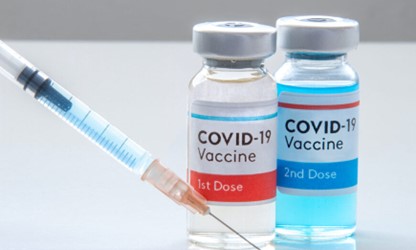
Type 1 Diabetes Now Linked to Both mRNA and Adjuvant COVID-19 Vaccines: New Peer-Reviewed Study
A 39-year-old woman developed “severe” diabetes symptoms shortly after receiving a COVID-19 vaccine, according to a case report published earlier this month in the Journal of Korean Medical Science. 0063JKMS_jkms-38-e209Download
By Jon Fleetwood – June 20, 2023
Six days after receiving a fourth dose of an adjuvanted Zifivax/ZF2001 protein subunit vaccine, she suffered from “severe” high blood sugar as well as ketoacidosis, which is when the body can’t produce enough insulin.
These symptoms are “consistent with the diagnosis of fulminant type 1 diabetes (FT1D),” the authors confirmed.
The woman had “no medical history of diabetes.”
She was treated with insulin but took nearly a month (24 days) to recover, including spending 10 days in a nearby hospital.
While the authors “could not confirm the objective causal relationship” between type 1 diabetes and the coronavirus vaccine, they admitted there was “a strong link” between the two.
The authors conclude by emphasizing the importance of informing the public of this potential vaccine-induced disease, even in patients “without a medical history of diabetes.”
“We hope to raise awareness of this potential adverse consequence and recommend careful monitoring after vaccination in patients even without a medical history of diabetes,” they write.
They went on to express their desire to “alert about related adverse consequences and strengthen the pharmacovigilance and supervision during mass SARS-CoV-2 vaccination.”
The authors elsewhere noted that while “several cases have been reported about new-onset FT1D” following SARS-CoV-2 vaccination using mRNA technology, the new case report represents the first instance of new-onset type 1 diabetes following administration of an ‘adjuvant’ coronavirus vaccine.
An adjuvant COVID vaccine contains a piece of the SARS-Cov-2 virus along with components that stimulate and enhance the immune response, whereas an mRNA COVID vaccine utilizes genetic material to instruct cells to produce viral proteins and initiate an immune response.
The adjuvant chemical in the Zifivax vaccine is aluminum hydroxide.
A May publication in the journal Ecotoxicology and Environmental Safety confirmed that aluminum “has been classified as a cumulative environmental pollutant that endangers human health.”
The authors pointed to “increasing evidence to suggest the toxic effects” of aluminum, noting that aluminum hydroxide is “the most common vaccine adjuvant” and “poses risks to the environment and early childhood neurodevelopment.”
They analyzed the brain-related, neurotoxic effect of aluminum hydroxide on early childhood neurodevelopment and found that exposure in certain organs caused “a reduction in the size, deficits in basal neural progenitor cell (NPC) proliferation, and premature neuron differentiation.”
Citing studies from 2018 and 2020, the researchers also confirmed that vaccines using aluminum adjuvants have “been implicated in neurological disease” and can “cause pathological lesions on the histology (tissue) sections of the liver, lung, heart, and kidney tissue.”
You can read that study below:
